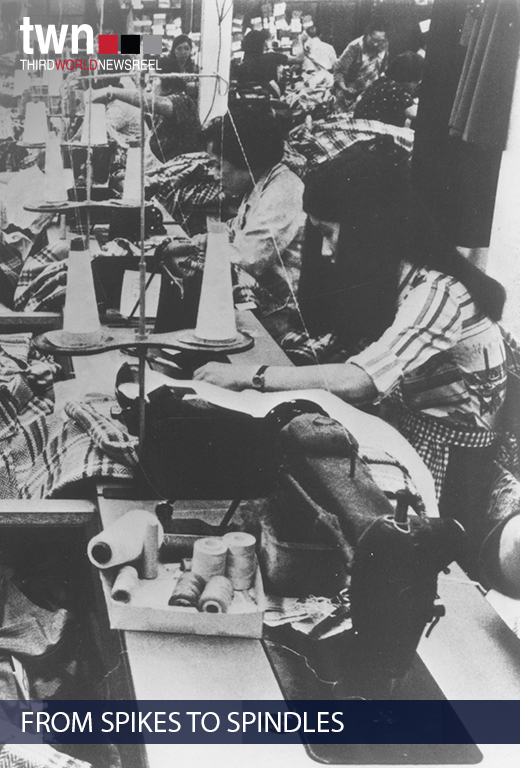"FROM SPIKES TO SPINDLES uses a conventional mixture of narration, archival footage, talking heads, and candid on-the-street footage to bear witness to the complexity of the Chinese-American past and present and to polemicize for broader ethnic representation in American life. FROM SPIKES TO SPINDLES established Choy as a significant force in the development of an Asian-American cinema."
- Scott MacDonald, A Critical Cinema 3: Interviews with Independent Filmmakers
"The work of veteran filmmaker Christine Choy has often been concerned with revising our commonly and uncritically held views, most often with hard-hitting footage that simply marvels."
- All Movie Guide
"This film portrays New York’s Chinatown through an unfiltered lens, painting an honest view of a community built by laborers in spite of the powerful forces of the cops and real estate developers who run the city to this day."
- Asian American International Film Festival
"Choy’s “From Spikes to Spindles” offers a fresh, vital survey of the Chinese-American experience spanning more than a century to an increasingly activist present."
- Kevin Thomas, Los Angeles Times
"TEACH OUR CHILDREN (1974) captures the abolitionist spirit of the Attica Prison Rebellion; FROM SPIKES TO SPINDLES (1976) gives voice to Chinatown labor organizing around sweatshops and gentrification; BITTERSWEET SURVIVAL (1982) and HOMES APART: KOREA (1991) the destructive legacy of American empire and militarism in Vietnam and South Korea. These films interrogate the legacies of incarceration and imperialism that all Americans inherit; rather than assimilation, these films point us to the necessary abolition of prisons and military bases. Choy’s lens never loses sight of what is human and universal, whether it is the loss of a loved one or searching for home—but these things are never subordinated to the political, nor can they be thought of outside of a political context. In this way, Choy’s films are a valuable lesson in how to think productively about identity and politics today."
- Peter Kim George, Sentient Bullein
